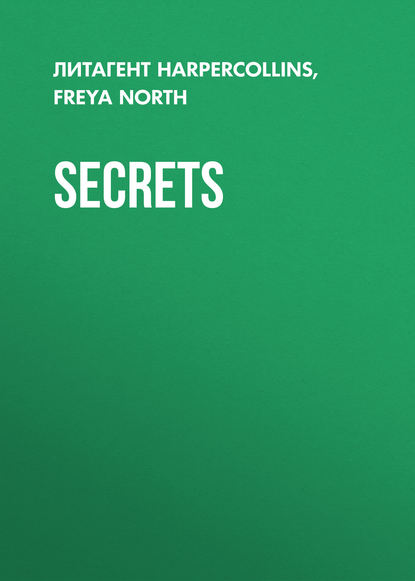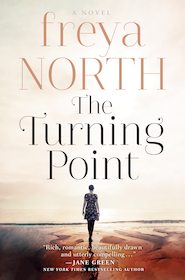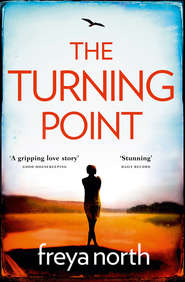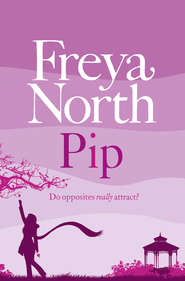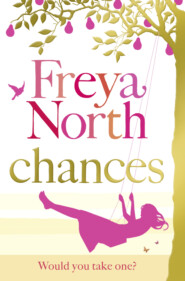По всем вопросам обращайтесь на: info@litportal.ru
(©) 2003-2024.
✖
Secrets
Автор
Год написания книги
2018
Настройки чтения
Размер шрифта
Высота строк
Поля
He looks up and there she is. He can see her, she's all in a crumple outside the baby's room. She's slumped on the floor, her back against the wall, her knees up, her head in her hands. Her shoulders are heaving. She's crying soundlessly – she appears to be consumed by utter sadness. He detects the effort it's taking her to counteract the need to let go with a stronger need for silence and invisibility. Mustn't wake the baby. Mustn't let anyone know. But her desolation descends the staircase heavily and every now and then, he can hear how her voice breaks through involuntarily; hollow and desperate.
Joe backs away.
What does she have to cry about?
Why so sad?
He wishes he could ask. He oughtn't to. He senses it is unequivocally private.
He'd like to make her a cup of tea.
Or offer her a glass of wine.
A chat.
But she doesn't appear again until the next morning.
She looks so fragile she's practically transparent.
It's so windy today, Joe thinks to himself. If she goes out in this, she might be blown away.
‘I'd stay in if I were you, Tess. I'm not venturing out myself in this weather. Thank God April's round the corner. Cup of tea? Kettle's just boiled. No? Later then – lunch too, perhaps.’
Chapter Ten (#ulink_011ab538-b75c-507e-aef4-65e85b7c2604)
‘My father was a doctor,’ Joe told her, ‘and his father before him. And so on. Right from the beginning. When Victorian Saltburn was thriving, they required the finest doctor around – so they perused the revered physicians from York to Durham and offered the position to my great-great-grandfather.’
They were standing at the foot of the valley, near the Cat Nab car park where the clear water of Skelton Beck is joined by the rust-coloured water of Saltburn Beck and they tumble out to sea. Tess and Joe were looking back up inland, both telling themselves that it was perfectly normal for the house-sitter to be out and about with the employer.
‘My dad lives in Spain,’ she said. ‘With his second wife. He's dodgy.’
‘Pardon?’
‘My dad. I don't really know what he does – career-wise. My grandmother used to tell me he “flew by the seat of his pants”. When I was little, I took this to mean that he had magical powers and the months he was AWOL I comforted myself imagining him flying to exotic lands – really flying, with no need for a magic carpet, his trousers sufficing.’
Joe smiled but curbed a chuckle – it was amusing but rather sad. He had to curb a stronger urge to tuck away the strand of hair caught across Tess's cheek. ‘Your mum?’
‘She remarried too. She lives in Florida. In a condo with a man called Merl.’
‘Do you visit?’
‘No. She comes back, once a year, to see my sister.’
‘And you,’ said Joe because he didn't like the way Tess had cut herself out of the equation.
‘Well, she stays with my sister who has a nice place in Edinburgh. And two children. I can't offer my mother anything close.’
‘But what about your Emmeline!’
Tess shrugged and looked downcast before visibly pulling herself together.
‘And your sister? Are you close?’
‘Claire's fifteen years older than me so no, we're not that close. Our lifestyles are very different. We don't really know each other.’
Joe was about to comment.
‘For example,’ Tess continued, ‘Christmas just gone, they went skiing. I mean, I don't ski, I couldn't have afforded the trip and I couldn't have gone with Em being so little. But I wasn't invited anyway. So it did mean I didn't have plans for Christmas.’
Joe thought about this. ‘Well, if it's any consolation, I was on my own too.’
‘Are your parents not around?’
‘Not around,’ he confirmed without further detail but also without the burning reticence he'd experienced when Tess had enquired about his family soon after she'd arrived.
Despite revealing the shortcomings of her family set-up, Joe thought she seemed particularly bright today. Or maybe it was because she was facing inland, with her back to the beach. Certainly there was no trace of her desolation last night.
‘See up there,’ Joe said, gesturing towards the valley, ‘that's the reason I'm not a doctor.’
The view was certainly picturesque, the perpetual sea breeze had caused the trees to point their branches inland. Tess looked, not quite sure on what she was meant to be focusing, so she nodded.
Her confused politeness touched Joe. ‘There used to be a bridge here – spanning the valley,’ he said. ‘The Halfpenny Bridge – or the Ha'penny Bridge. It was built in 1869 to link the other towns of Skelton and Loftus with Saltburn, to enable travellers to avoid the steep drop down to the sea and the arduous trek up the other side of the valley. The bridge rose 120 feet above the Valley Gardens and it was a fantastic piece of Victoriana. Seven cast-iron supports, ostentatious in height and length. Spectacular views of coast and country.’
‘Why Halfpenny?’ Tess asked. She might be looking at nothing but she could clearly envisage Joe's bridge now.
‘Pedestrians paid half a penny. Carriages sixpence.’
‘But where's it gone? Why isn't it still here?’
Joe wasn't going to answer that just yet. ‘You'll find so much about Saltburn has a darker side. It always has – throughout its history. From smuggling to suicide. It's not all creamy dreamy buildings, a jolly pier and a quirky funicular. The Ha'penny Bridge became a hotspot – or should that be black spot – for suicides. As a bridge builder, that's often what gets me most about suicides from bridges. Jumping from tall buildings is one thing; similarly Beachey Head – those structures, whether natural or man-made, are static – they go up and then they stop. There's a top, if you like, and a bottom – the emphasis is vertical and finite. But bridges, by default, are there to carry you. They dominate a different axis altogether. And it – well – it breaks my heart, actually, that some people can't see the other side. They are too lost to see there is a way across. That A flows over to B. That there's another side, another way. They walk along a little distance – and then they let go. In that moment, the bridge somehow fails its function and it fails them.’
‘The Clifton Suspension Bridge has the Samaritans’ number on each approach. I grew up in Bristol. Is that why it's gone, the Halfpenny Bridge?’
Joe shook his head and gave her a smile because she grew up in the shadow of one of the most seminal bridges of the world. She was currently all ears, all eyes and she hadn't noticed that Emmeline was testing the taste of coastal soil. He retrieved the child and hitched her onto his hip, not minding the grubby fingers exploring the bristles on his jaw.
‘No. Actually, that had little to do with it. From the 1960s the bridge started to need repairs, and then total refurbishment. It was going to be too costly to fix, but too dangerous to leave standing. So they demolished it.’
The way he said it made it seem so violent. Senseless, almost. Tess frowned. ‘What a tragedy.’
‘Sort of. It was 1974. The seventeenth of December – my tenth birthday. That was my party, that year, I suppose. My parents brought me down with my little gang to watch. It took four seconds, exactly, to reduce a hundred and five years of cast-iron beauty and engineering into a twist of tangled metal.’
Tess let it hang for a moment. ‘And that's when you decided not to be a doctor?’
‘That's when I decided I wanted to build bridges.’
She let Joe have his memory in private while she enjoyed imagining him as a boy, clothing him in her mind's eye in a ridiculous cliché of cloth cap and hobnail boots, shorts and a knitted tank-top. It made her giggle, which brought Joe back to the present and that returned Tess's focus to the here and now between them.
‘The view must have been so different – when the bridge was here.’





